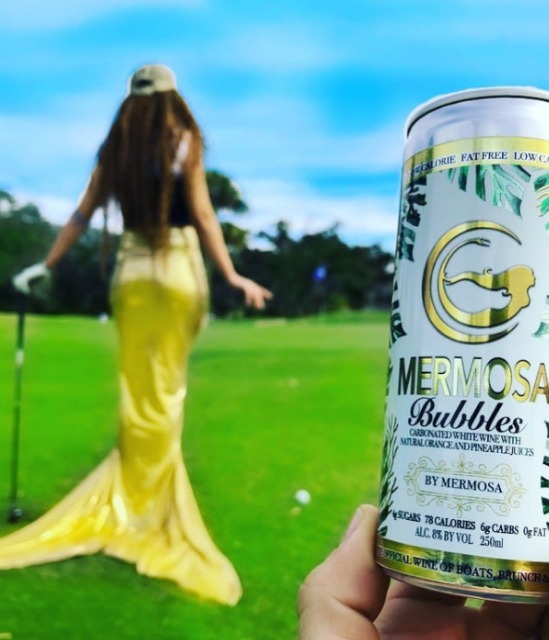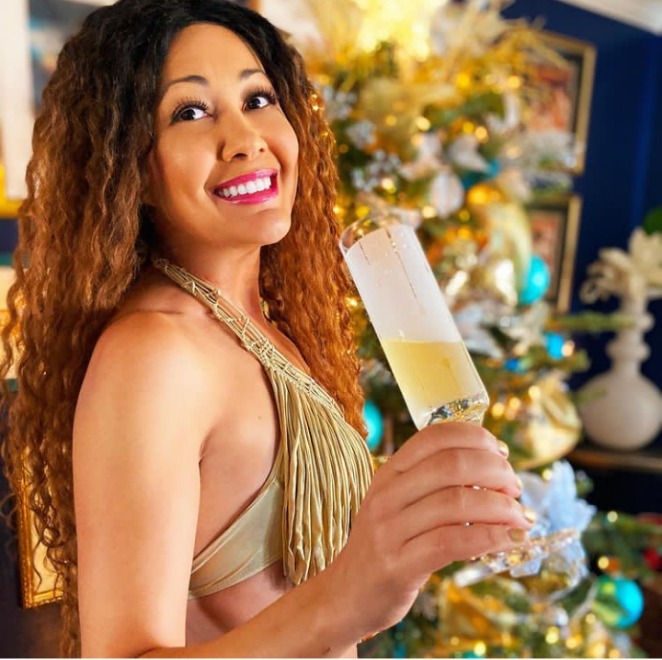She might be the first, but she won’t be the last!
“Mermosa is inspired by our family’s first mermaid. Her name was Celestine Noisette.”
Four years ago, the wine brand Mermosa came into existence after Desiree Noisette got inspired after learning about her family’s really inspiring story.
Seven generations ago, her ancestor Celestine who lived in Haiti during the late 1700s met and married a white Frenchman named Phillipe, a botanist and became famous for creating the “Noisette Rose.” Shortly after the pair moved to Charleston, South Carolina. Phillipe made several attempts to protect his family from being sold into the slave trade because his wife was black and his children were mixed. This included creating a fake bill of sale to purchase his wife and children so they couldn’t be taken away and sold to other people. He petitioned the state of South Carolina for their freedom. Phillipe made one last attempt to free his family before he died. “Unfortunately, the petition was denied by the state.”
“When he died, he had this will that was really very unusual for the time. He said to the executor, ‘Listen, when I die, sell all of my things. Give the money to Celestine and then sneak her and the kids to a northern state where they can be free,’” Noisette said.
But Noisette said Celestine didn’t follow her late husband’s wishes.
“She told the executor, ‘No, I don’t want to leave. This is where our land is, our family business. I’ve been a part of this,’” Noisette said. “So she convinces the executor to create a legal structure that allows herself and the kids to remain in Charleston as free people of color and eventually they do win full emancipation and are able to own land and the business in Charleston.” The family gained freedom!
 “Her audacious spirit and their eternal love are infused in every sip of Mermosa.” “This story stokes the fire in my heart and my determination to honor this remarkable woman, who I’ve always believed was the original mermaid.” Reminiscing on her ancestors, Celestine and Phillipe tells Travel Noire.
“Her audacious spirit and their eternal love are infused in every sip of Mermosa.” “This story stokes the fire in my heart and my determination to honor this remarkable woman, who I’ve always believed was the original mermaid.” Reminiscing on her ancestors, Celestine and Phillipe tells Travel Noire.
Noisette said Celestine’s powerful voice still inspires her to this day.
“I like to say that our wines are infused with a piece of her audacity,” she said.
Before Noisette delved into the wine business, she used to practice construction law for many years before changing career paths to become a winemaker.
“We would learn from the experts how to break things down, how components were supposed to come together and to me winemaking isn’t that much different,” Noisette said. “I learned from experts how to do wine formulations and got my winery license and set up a lab and started doing wine formulations about four years ago.”
In 2012, after she left her law career she opened a swimwear store in downtown St. Petersburg and began talking with wineries across the country sharing her idea about the wine she wanted to make and asking for help. She connected with a winery in Oregon to learn the trade and come up with the formulations.
There are three Mermosa wines currently available. The Celestine rosé is a rosé wine with bubbles. The Mersecco Blanc de Blancs is created using premium carbonated white wine and features a crisp, dry finish. The Mermosa Bubbles is created using premium white wine with a splash of natural orange and pineapple juices for a refreshing, not too sweet finish.
“One of the hallmarks of my wines is that they’re on the drier end without alienating folks who enjoy sweeter wines. They’re crowd-pleasers. They’re meant to bring people together,” she said. “We are the official wines of boats, brunch and beaches.”
Noisette, the first Black female wine owner in the state of Florida says of the achievement:
“It’s exciting on one hand to be the first at something, but then it’s also I don’t want to be the last,” Noisette said. “I feel a real sense of responsibility to make sure that we have programs in place and that we’re supporting organizations that help cultivate more folks, more ladies of color to get into the wine industry.”
Noisette adds she believes there has been a movement in the wine industry to be more inclusive.
“I don’t think I’ll be the last,” she said.



